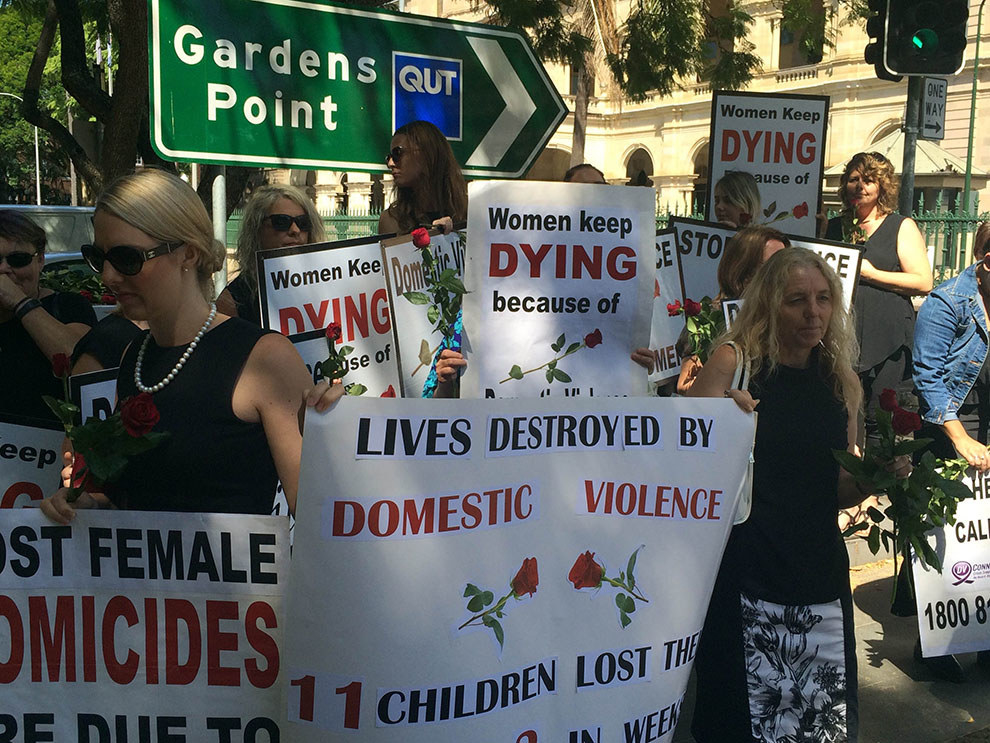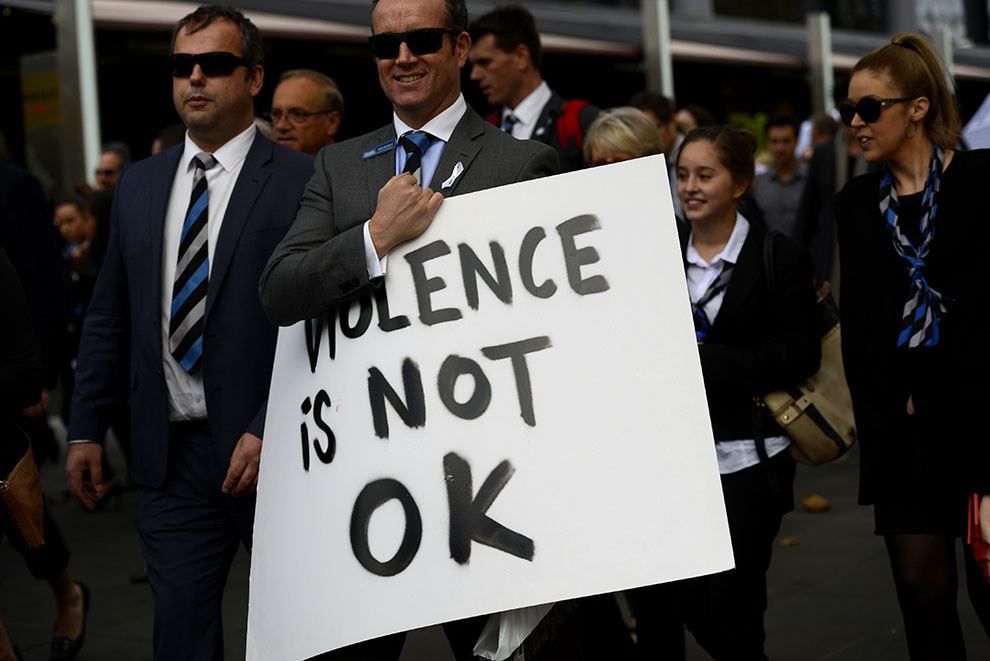"If only I'd recognised the warning signs." That is what many survivors have told Australian psychologist Carmel O'Brien over two decades in her work treating, and designing programs for, women and children who have suffered through family violence.
"A lot of people still think it has to involve hitting or physical harm but that is not always the case as it can be sexual, emotional and financial," O'Brien told BuzzFeed News.
"The prevailing dynamic is there is an imbalance of power in the relationship where one person is trying to intimidate and control the other person."
Here a few of the signs of an abusive relationship O'Brien says sometimes go unnoticed.
The relationship gets really intense, really quickly, really early on.
O'Brien said victims of family violence were often doggedly "wooed" and "pursued" initially.
"One of the early warning signs is the person does not take no for an answer," she said.
"If a new boyfriend sends you 50 text messages in 24 hours it might seem like love and this is person is your knight in shining armour."
"It is not uncommon, and I have talked to literally thousands of survivors, for an abusive person to come galloping into your life as if they were always meant to be there."
This overbearing level of contract should not be confused with "mutual contact", she said.
"If you want to stay on the phone all day with someone you're besotted with then that is just the usual insanity of being in love but if they are constantly monitoring your activity via texts and phone calls that is something different."
The relationship can "escalate very quickly" and long-term commitment or marriage might be raised in conversation within a few months.
"An abusive partner often does not regulate to the pace of their partner," she said.
"So if someone is really busy with study and wants space until their exams are done the partner might keep texting every night until their mind is changed."

Your social circle shrinks after you enter into the relationship.
"The partner might criticise your family and friends or actually object to you spending time with them," O'Brien said.
"A lot of people I've seen in relationships for a long time find their friends and family diminished so they don't have a big enough circle to get reality checks."
This can drive a wedge between the person being controlled and their support network.
"It is quite common that friendships are eroded because one person wants to control their partner and to maintain that control they need to be number one," she said.
"The person loses their access to people who love them so they are less likely to hear 'I think you're actually really smart' or 'I think you actually look gorgeous' and their self esteem remains low."
Your partner is controlling.
"With young women in particular it is about someone thinking they have the right to tell you how to behave, who you're allowed to talk to, what time you have to be home and what you wear and eat," O'Brien said.
Decisions that should be autonomous or personal become joint decisions.
"If someone punishes you in any way when you step out of line that is a real red flag," she said.
"One woman told me about how she came home later than she thought she would and her partner refused to let her into the flat the entire night and she slept in the corridor."

You frequently find yourself "coming around" to ideas or accepting situations that initially made you uncomfortable.
"If a person is doing anything because they are worried their partner will react negatively if they don't then that is a warning sign," O'Brien said.
"There is this gradual invasion of your personal autonomy and identity and it happens kind of slowly but it involves putting their priority list before your own and spending your time in a different way than you had planned, doing things you'd rather not be."
Women being pressured into "various sexual behaviours" they did not desire was a reoccurring dynamic between O'Brien's patients and their former partners.
"The partner might shame them for being scared or a prude and they'll be coerced into [fulfilling a particular sexual fantasy]."
You're being made to feel "crazy" or "hysterical", especially if you challenge your partner.
O'Brien said manipulating someone into doubting their own sanity, often termed "gaslighting", was a way for abusers to maintain control.
"They'll say things like: 'you're overreacting', 'you're crazy', 'you're hysterical' or make you feel at odds with everyone else: 'no one behaves or thinks like that'," she said.
This means the person has to rely on their abuser to interpret the world for them as they feel incapable of doing so.

Your partner is irresponsible.
"This is where a partner is reluctant to ever be responsible for their behaviours, small or big," O'Brien said.
"They never say sorry, or they shift blame onto the other person - 'I never would have hit you if you hadn't... ' - and they refuse to take responsibility for smaller things and make them the other person's problem like parking fines or their workload."
You spend time convincing yourself or others that things are OK or will be OK eventually.
"Many women tell me 'I thought I could fix him' or 'I thought if I loved him enough' or 'I thought it would be better once I was married or we were richer'," O'Brien said.
Volatile or violent situations might be downplayed to ensure friends and family maintain respect for those in the abusive relationship.
"Something [family violence campaigner Rosie Batty] once said is that if you put a frog in boiling water, it'll jump straight out. If you put it in cold water and slowly heat the water it will stay in the pot and boil to death."

If you or someone you know is experiencing violence and need help or support, there are national and state-based agencies that can assist you 24 hours a day, seven days a week. Call 1800 RESPECT (1800 737 732).
